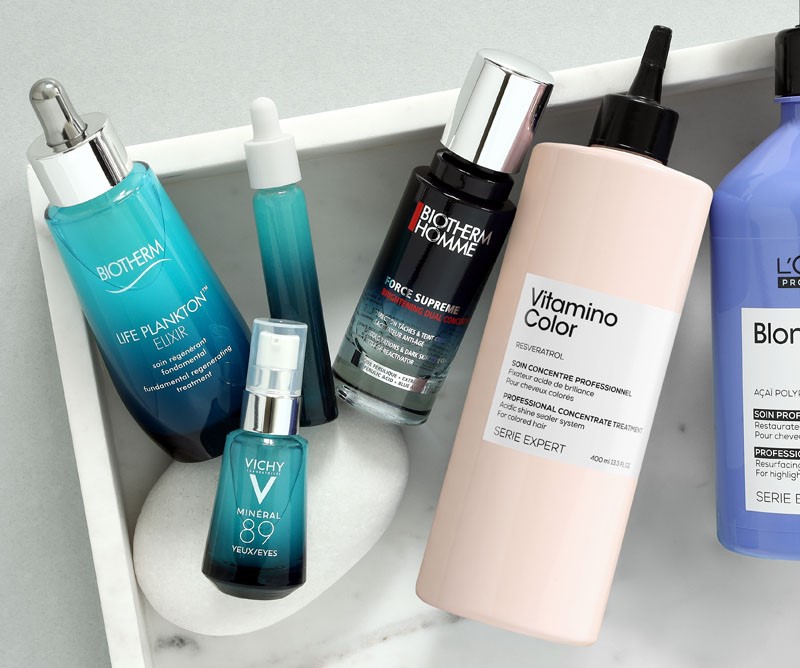A2102 Insights
Explore the latest trends and news on technology, lifestyle, and more.
Cosmetic Chemistry: Secrets Behind Your Favorite Products
Uncover the hidden science behind your favorite beauty products and elevate your skincare game with expert tips and insider secrets!
The Science of Skincare: How Active Ingredients Transform Your Routine
Understanding the science of skincare is crucial for anyone looking to enhance their beauty routine. Active ingredients are the powerhouses behind effective skincare products, targeting specific concerns such as acne, aging, and hyperpigmentation. For instance, ingredients like retinoids promote cell turnover and stimulate collagen production, while vitamin C provides antioxidant protection and brightens the skin. Incorporating these into your daily regimen can lead to noticeable improvements in skin texture and tone.
When selecting products rich in active ingredients, it's essential to understand how they function in synergy with one another. For example, combining hyaluronic acid with peptides can enhance hydration and improve elasticity, creating a plumper appearance. Additionally, implementing these ingredients gradually into your routine can help the skin adjust, minimizing irritation and maximizing benefits. To learn more about the transformative effects of active skincare ingredients, consider exploring resources like Healthline.

What Are Emollients and Why Are They Essential in Cosmetics?
Emollients are moisturizing agents that play a crucial role in maintaining skin hydration and integrity. They work by forming a protective barrier on the skin's surface, which helps to lock in moisture and prevent transepidermal water loss. This is particularly important in cosmetics, where achieving a smooth, hydrated complexion is essential for product efficacy and user satisfaction. Common emollients include ingredients like shea butter, cocoa butter, and various oils such as jojoba and coconut oil, all of which can provide a softening effect on the skin.
Incorporating emollients into cosmetic formulations not only enhances the application experience but also contributes to long-term skin health. They are essential for combating dryness and irritation, especially in products intended for sensitive or mature skin. Additionally, emollients can improve the overall texture and appearance of the skin, making it feel smoother and look more radiant. As consumer awareness around skin health grows, understanding the benefits of emollients in cosmetics is becoming increasingly important for those looking to optimize their skincare routines.
Unveiling Myths: Common Misconceptions About Cosmetic Ingredients
When it comes to cosmetic ingredients, there are numerous misconceptions that can cloud consumers’ understanding. For example, a common myth is that all synthetic ingredients are harmful to the skin. In reality, many synthetic ingredients are created to mimic natural compounds and are rigorously tested for safety. According to the U.S. Food and Drug Administration, many synthetic alternatives can provide better stability and performance than their natural counterparts. This misunderstanding can lead consumers to avoid products that might actually benefit their skincare routine.
Another prevalent myth is that all-natural ingredients are always safe and effective. While many people prefer natural formulations, it's essential to note that some natural substances can cause irritation or allergic reactions. For example, essential oils, often touted for their therapeutic properties, can be overly potent and may not suit everyone. The National Institutes of Health highlight the importance of understanding each ingredient’s potential effects, regardless of whether it is natural or synthetic. Therefore, consumers should prioritize knowledge and transparency over buzzwords when selecting cosmetic products.